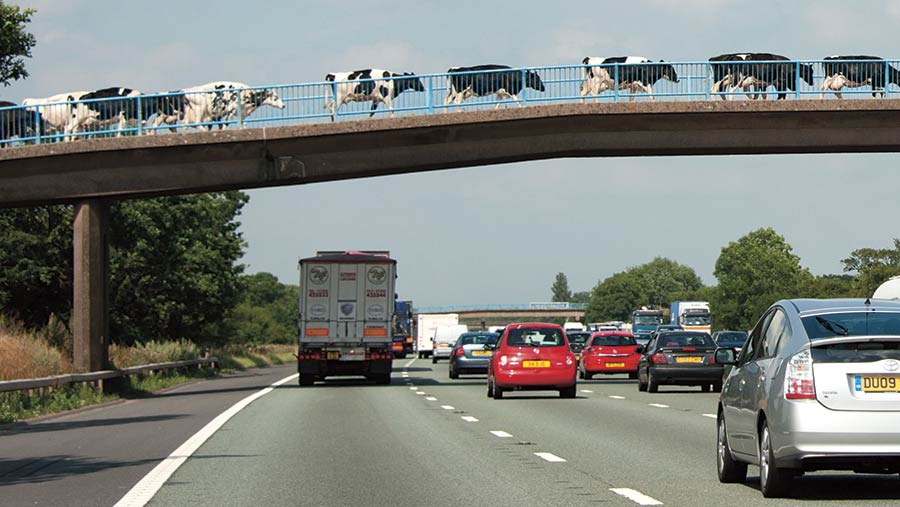Compulsory purchase – how to minimise impact on your farm
 GeoPic/Alamy
GeoPic/Alamy A large infrastructure project can have a permanent impact on a farming business and the lives of those involved. Knowing early on how to minimise this is paramount.
When compulsorily buying land, acquiring authorities have certain obligations they must consider.
The most important of these is likely to be mitigating the schemes’ impact on the environment, whether that’s designated landscapes or protected species.
Some acquirers may wish to extend their responsibilities to mitigating against all environmental impacts which is why HS2, for example, is taking so much additional land for compensatory habitat.
However, the position with property owners is very different. Under compulsory legislation, authorities’ sole duty is to compensate the claimant for their financial loss.
Reducing impact or maximising compensation
The accommodation works they agree with property owners are usually reached on the basis that the proposed works will reduce the impact and therefore reduce the overall compensation.
 Andrew Shirley, chief surveyor, CLA
Andrew Shirley, chief surveyor, CLAThese works could include new access, bridges, underpasses, noise mitigation or landscaping.
Some of these measures might be to reduce the impact on communities, but may increase the impact on landowners, so you need to be alive to what others are saying as well as what you are asking for.
See also: Compulsory purchase – understanding who can enter your land
The immediate and understandable reaction is to want the scheme off your land, but in terms of compensation, you are better served when you lose land so you can claim for all your losses rather than the scheme happening on the “other side of the hedge” where your claim is much more limited.
You may also wish to consider whether your aim should be to reduce the impact of the scheme or maximise your compensation.
A landowners’ position is not strong in negotiations and it is also important that you challenge what is being proposed if it seems unreasonable.
Are they taking too much land? Do they need it permanently or just for a few months or years? If the land is to be given back, in what timescale and in what condition?
When to discuss accommodation works
As a scheme progresses it becomes more difficult to change the plans, so you need to discuss matters such as accommodation works as early in the process as possible.
This does not mean you cannot continue to object to the whole scheme but you are protecting your position should the scheme go ahead.
Once the acquirer has served you with a compulsory purchase order or has a development consent order it is often too late to get much changed.
You need to think about how they will access your ground for surveys and the disruption this may cause, how you are going to manage the land during construction and how your land holding will look after construction.
See also: The farmers fighting compulsory purchase
Depending on the scheme and your farming system you may need access across the working area to move livestock or machinery. This will be particularly important with a dairy unit or during harvest.
For long-term mitigation you may also want to consider drinking water supply for livestock and access to your house or farmstead, or other businesses you operate.
Don’t forget you can ask for bridges and underpasses, landscaping (tree planting and bunding), and conduits to carry water, electricity or broadband too.
See also: Compulsory purchase: How landowners can protect their rights
If you do not achieve what you consider reasonable accommodation works you can continue to sustain your objection to the scheme and present your case in front of an inspector, or in the case of a Hybrid Bill, in front of a parliamentary committee.
Temporary work sites
Sometimes temporary work sites are included within the scheme. At other times, as a landowner you may be approached to provide these sites outside the scope of the statutory scheme.
You need to be aware that if you reach agreement with the contractor it will be seen as a contract between you and the contractor, not the acquirer, so you will need a properly drawn up agreement to deal with this.
Only you can properly assess the impact of the scheme
You know your land and your enterprises better than anyone else.
Make sure you take sufficient time out to consider the impact of the scheme and how you wish to maintain the desired relationship with the acquirer.
You will then be best placed to deal with the upheaval of the scheme, plan for the future and provide clear instructions to your professional advisers.
